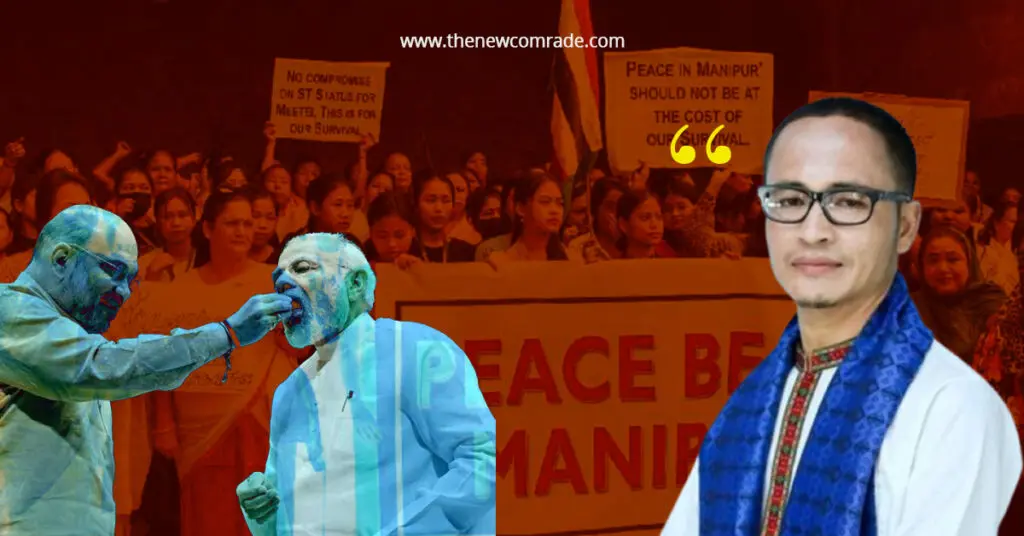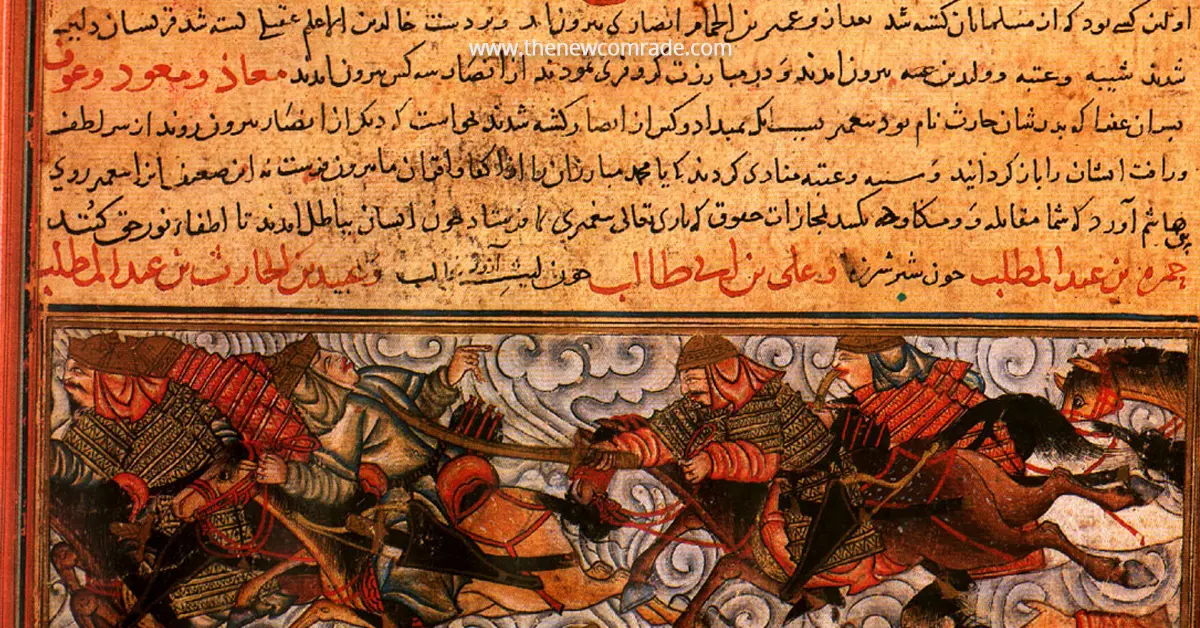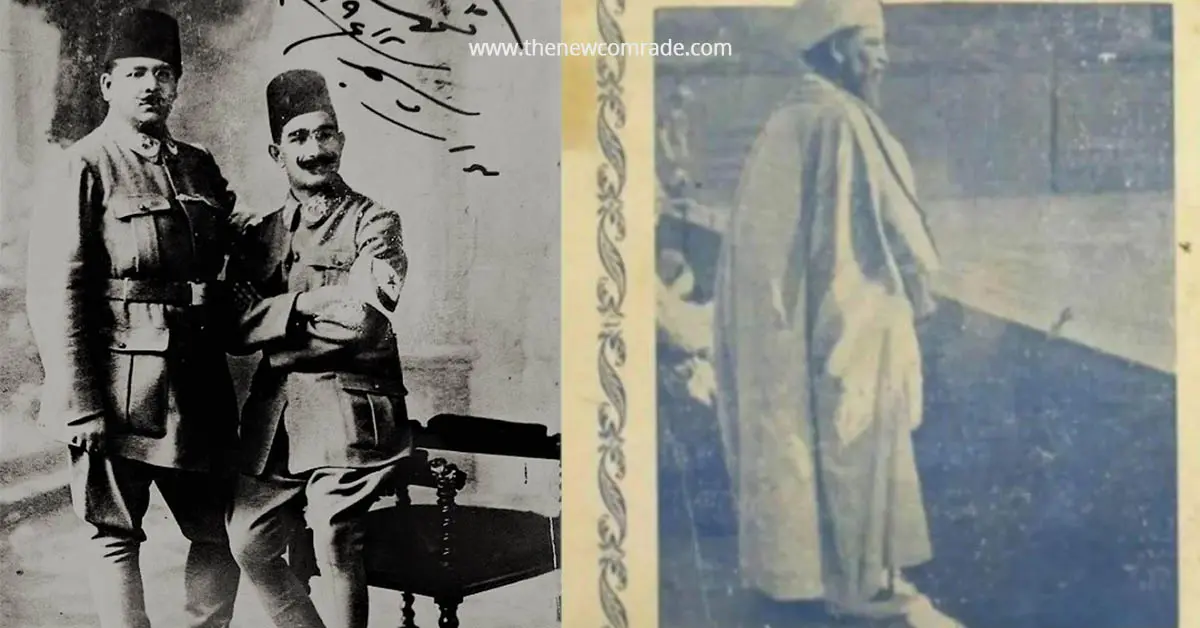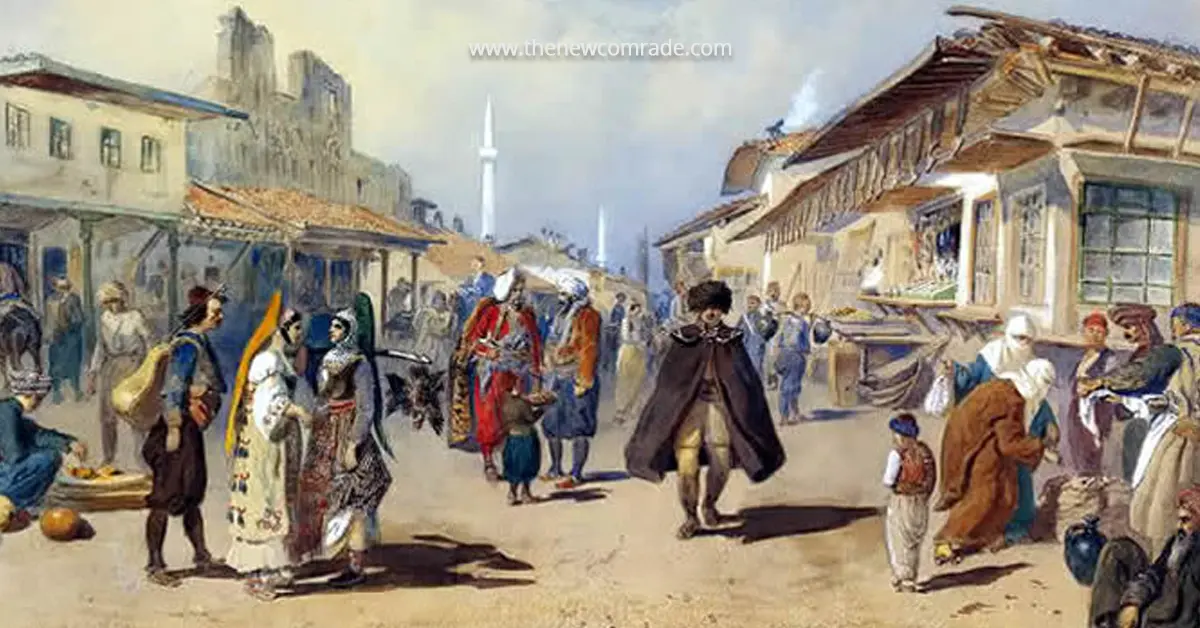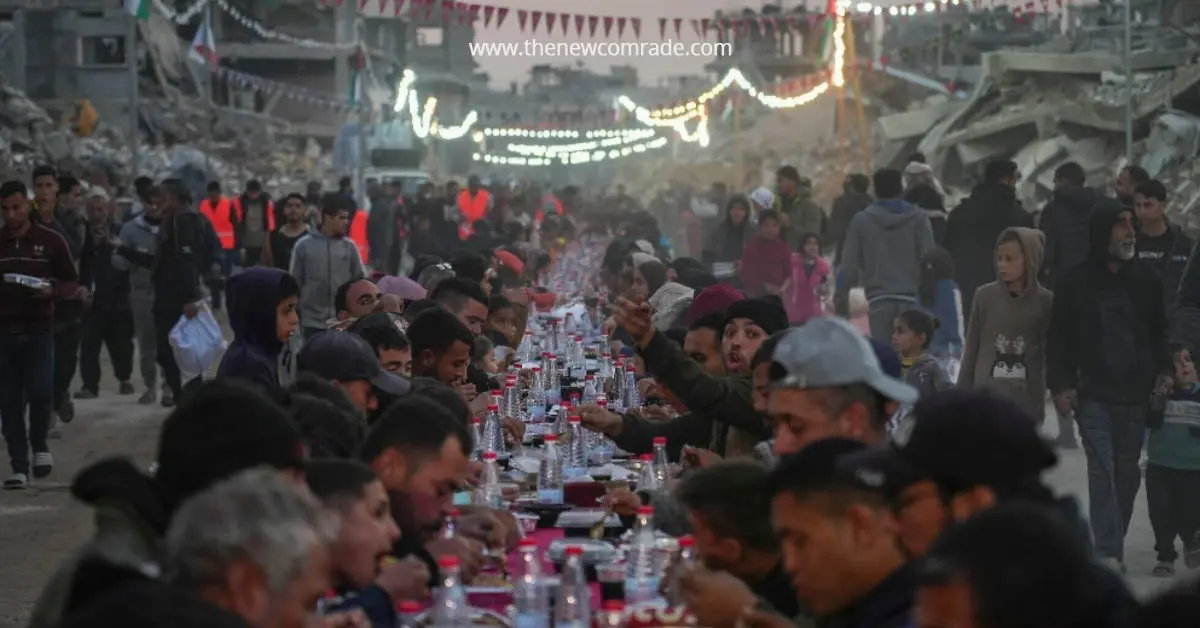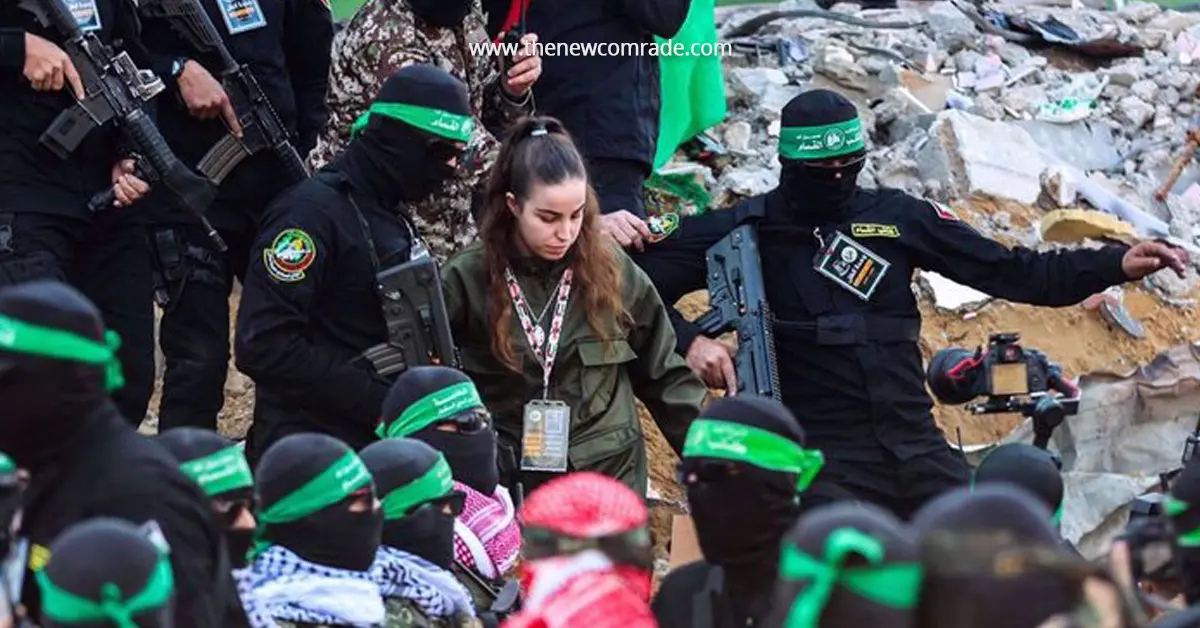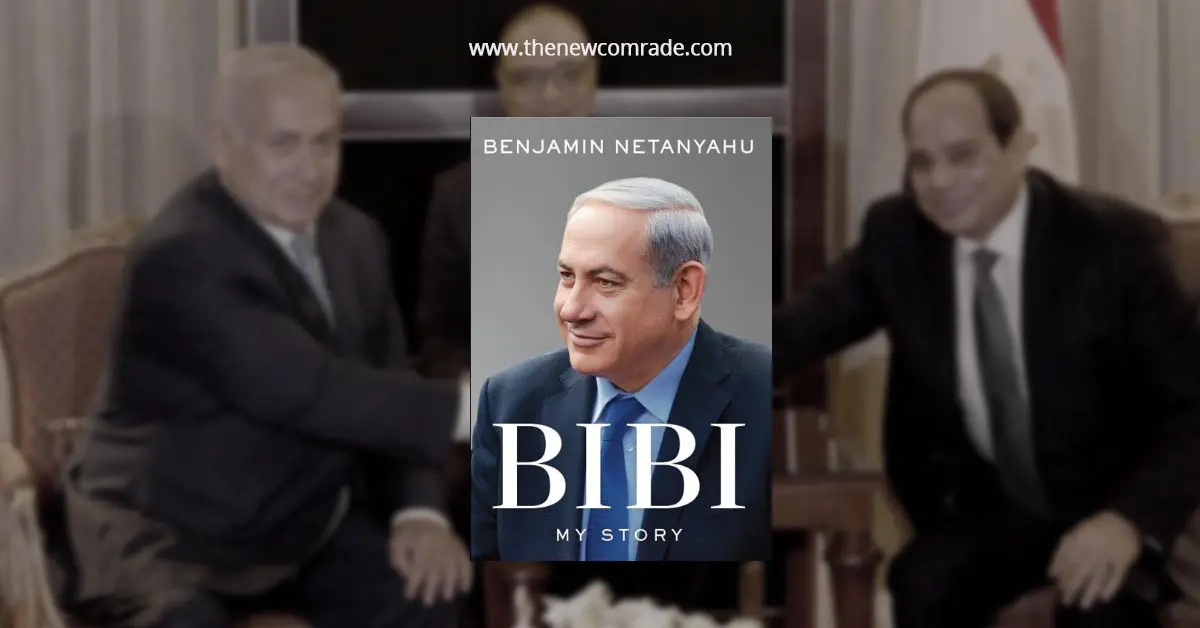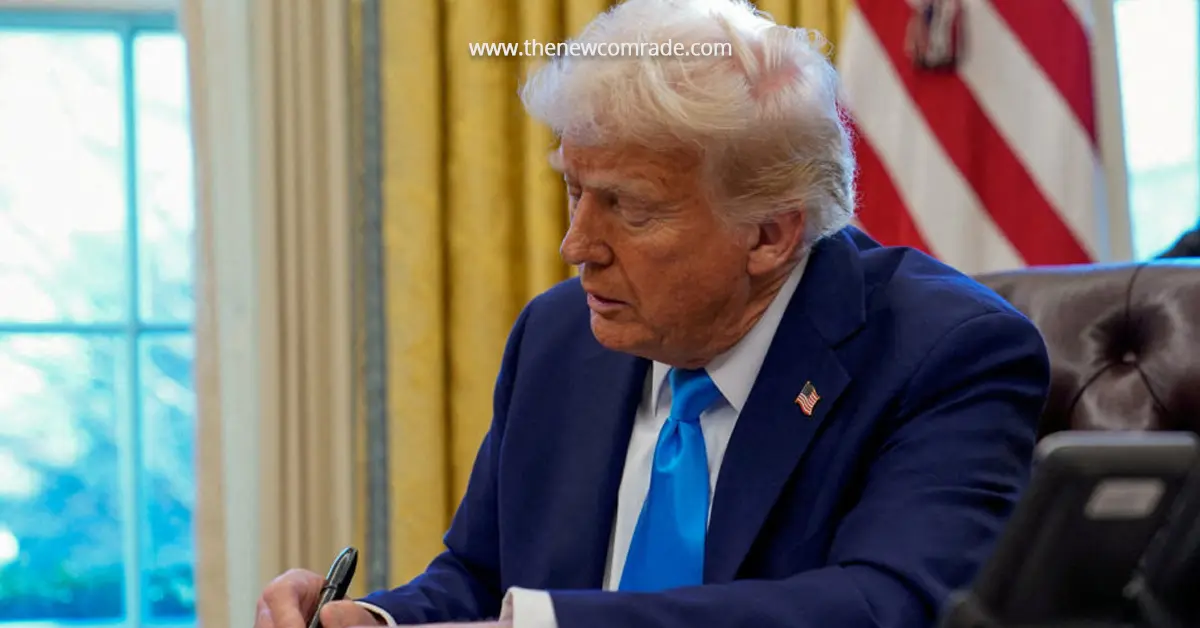The violence devastating the state of Manipur since May shows no signs of ending. Dr. Lamtinthang Haokip, a prominent social activist and former Congress state leader hailing from the Kuki community, firmly asserts that his state is experiencing an ethnic cleansing targeting the Kuki tribal minority. As an eyewitness to these distressing events, Haokip reveals that the Kukis have been forcibly displaced from the Imphal valley, and Manipur has divided geographically and sentimentally. He further accuses the Meitei civil societies of orchestrating violence against the Kukis, with the support of the BJP state system, which stands in stark opposition to their interests.
As a firsthand witness of the violence in Manipur, could you shed some light on the current situation in the region? As an individual who has experienced such violence, what do you want to share with the outside world?
Almost everything you hear through social media or mainstream news channels is falsified information, as the print and electronic media centered around the Imphal valley in Manipur is under the control of Meiteis. They often portray the Kuki community as instigators of riots. How can the few Kukis living in pockets of Imphal Valley desperate to save their lives destroy temples and attack the majority Meitei community? This misrepresented narration has unfortunately spread across India, and the Indian people seem to have embraced this portrayal. This is evidently due to Meitei community’s influential hold over all systems and political institutions.
Our constitutional rights have been revoked, and our people have faced assaults. Our political representatives have only demanded the rights which our constitution guarantees us. But when we put forth these demands they portray us as communal. While the Meitei community, being the majority, claims that they are endangered, imagine the plight of minority communities like the Kuki. The demand for Scheduled Tribe status by the Meitis seems driven not by the intent to claim their constitutional rights but to gain control over our lands, passed down to us through generations.
Have there been several heinous crimes in Manipur, like the recent incident where two Kuki women were paraded naked? Has the outside world been unaware due to internet restrictions?
The Chief Minister, Biren Singh, himself has acknowledged that several such crimes have occurred in Manipur. The fact that a woman was stripped, assaulted, and raped because she was a Kuki tribal woman is deeply distressing. The Chief Minister’s confirmation suggests he is well aware of these acts committed by Meitei criminals and militant groups in Manipur.
This cannot be seen as an isolated event. The video of the incident, which has been widely circulated on social media, took place in the beginning of May. Internet connectivity was deliberately restricted by Biren and his authoritative government to prevent such incidents from being exposed to the outside world. During this time, Meitei organizations like Arambai Tenggol and Meitei Leepon were involved in numerous horrific crimes. There is a complete lack of law and order in Manipur. The Chief Minister should have resigned when he couldn’t effectively intervene or control the violence. It is shameful that, even after three months, he continues to hold the position. Does he have the moral right to continue as chief minister when he is unable to fulfill the responsibility of state governance?
Why did these violent events break out in Manipur? How did the government’s policies influence the people? Weren’t some of Chief Minister Biren Singh’s statements controversial?
The violence erupted on May 3, but its underlying causes had been apparent beforehand. Chief Minister Biren Singh himself contributed to the tense atmosphere by delivering targeted hate speeches against the Kuki community, accusing us of being illegal immigrants while also insulting us as poppy cultivators. While it is true that a handful of desperate individuals in Kuki populated areas engage in poppy cultivation, it is unjust to label the entire community as such. Yet the question remains: Who benefits from this poppy farming, and who is behind the drug mafia? An honest investigation could reveal the truth, but unfortunately, the Biren government is unwilling to conduct such an enquiry. While drugs have been seized from various places, an extensive investigation has never taken place. Instead, the Manipur government seems to be using the Kuki community as scapegoats. Only an unbiased investigation can expose the real culprits behind these drug mafia organizations, which I assure you would implicate political leaders in the valley as well.
Several months have passed since the riots began, but the government has made no apparent efforts to restore peace. The response from the BJP raises questions about their intentions. Could they be pursuing different goals under the cover of these violent events?
Since the BJP came to power in 2017, they have entered into numerous contracts with mining corporations and business groups. However, it is not certain whether their involvement in the riots is driven by the pursuit of profits through these deals. Further investigation is needed to clarify their intentions. The BJP has been known to employ divisive tactics in many places to secure electoral victories. In Gujarat, they instigated communal divisions and manipulated ideas to create a perception of threat to the Hindu community. A similar pattern of division and violence can be observed in the ethnic cleansing at Manipur. It remains to be seen what stance they will adopt in the 2024 elections. Will they manipulate the narrative to portray the Hindu communities in Manipur as victims of attacks by Christian communities? In-depth investigation by news media is crucial in understanding these matters fully.
As a social activist from the Kuki Community, what solution do you think will work for this issue?
The administrative systems in Manipur have completely failed, and the damages caused are irreparable. Geographically and sentimentally, we have become separated from the majority Meiteis. Our leaders and parliament members have recognized the gravity of this issue, and a unified reality or life seems unattainable at this point. And returning to the previous situation is not feasible. We are resolute in demanding a separate administrative authority in the Valleys and appeal to the government and Indian citizens for a political solution to address this matter. It is imperative to ensure that our women never face the humiliation and assaults they endured, ever again.
A Hill area committee with special rights already exists. So what kind of special state system are you thinking about?
We are demanding a separate state, and it has been a longstanding one. The Kuki National Assembly had previously sought a separate state for the Kuki community in the 1960s, during the time of Nehru. We are a community who valiantly fought in the Indian freedom struggle, with several Kuki members serving in the Indian National Army under the leadership of Subhash Chandra Bose. We courageously participated in a three-and-a-half-year-long struggle against British colonialism, a significant historical event known as the Anglo-Kuki War. Therefore, our demand for a separate state is well deserved.
(This interview was originally published in Keraleeyam Web Magazine)
Translation: Dilshana Sumayya
